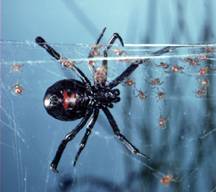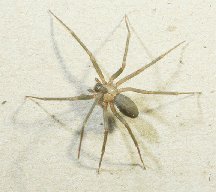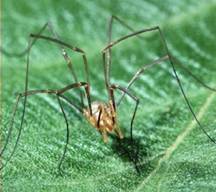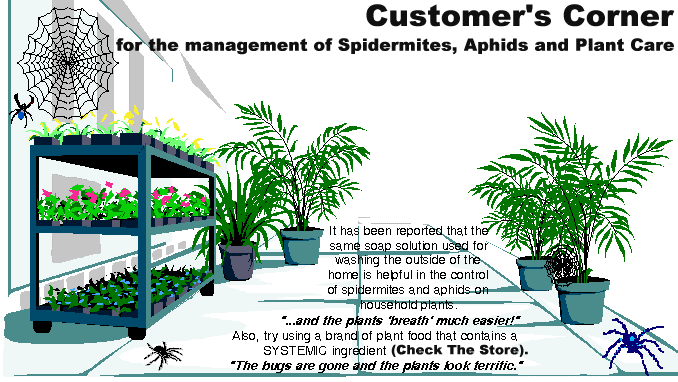GOOD NEWS! You already
have the means at your disposal for the most effective
methods for spider management. Spiders, especially the
black widow and the brown recluse, love to live where they
are not disturbed. Follow the items outlined below and
you will disturb them into finding another place to live
while you enjoy all the benefits of your home.
|
| YOU CAN: |
- Notify us of the problem when you schedule your
service.
- Vacuum interior areas regularly around and under
furniture, behind draperies and blinds, in corners and
'hidden' cubbyholes.
- Eliminate (or frequently move) boxes and other stored
treasures in closets and attics.
- Wash down the exterior of your home and landscaping
with a light soap (like dish soap) and water
solution. (Do not use a citrus-based soap which
may harm plants.)
- Remove their favorite habitats in unused stacks of
lumber, bricks, blocks, bark or other materials.
|
| WE WILL: |
- Treat severe problem areas indoors around baseboards
and surface areas.
- Treat severe problem areas outdoors around eaves,
doorways, windows and ledges.
|
- REMEMBER -
THE KEY TO MANAGEMENT IS TO KEEP YOUR HOME FREE OF WEBS.
*** They cannot reproduce if they cannot feed! ***
|





